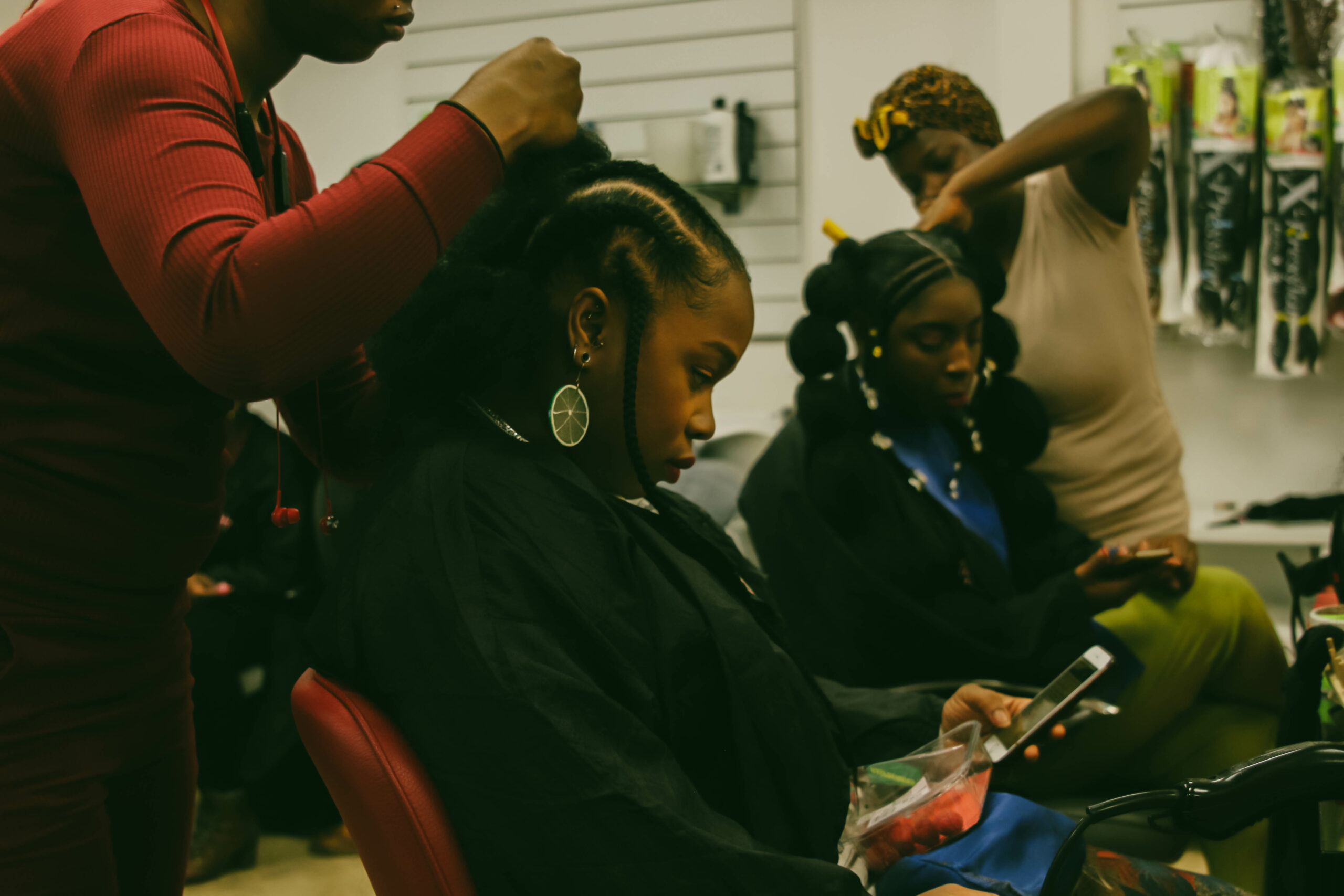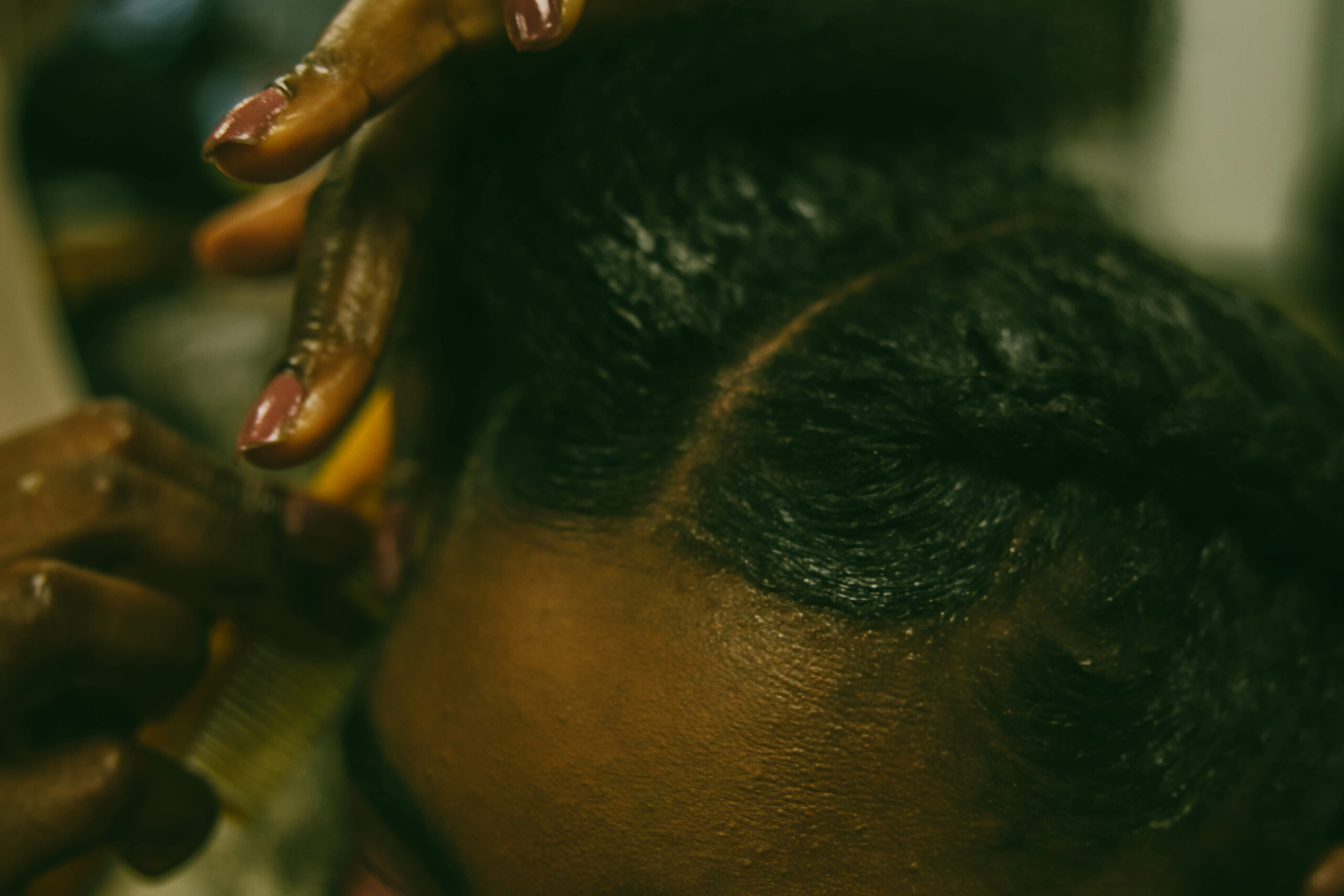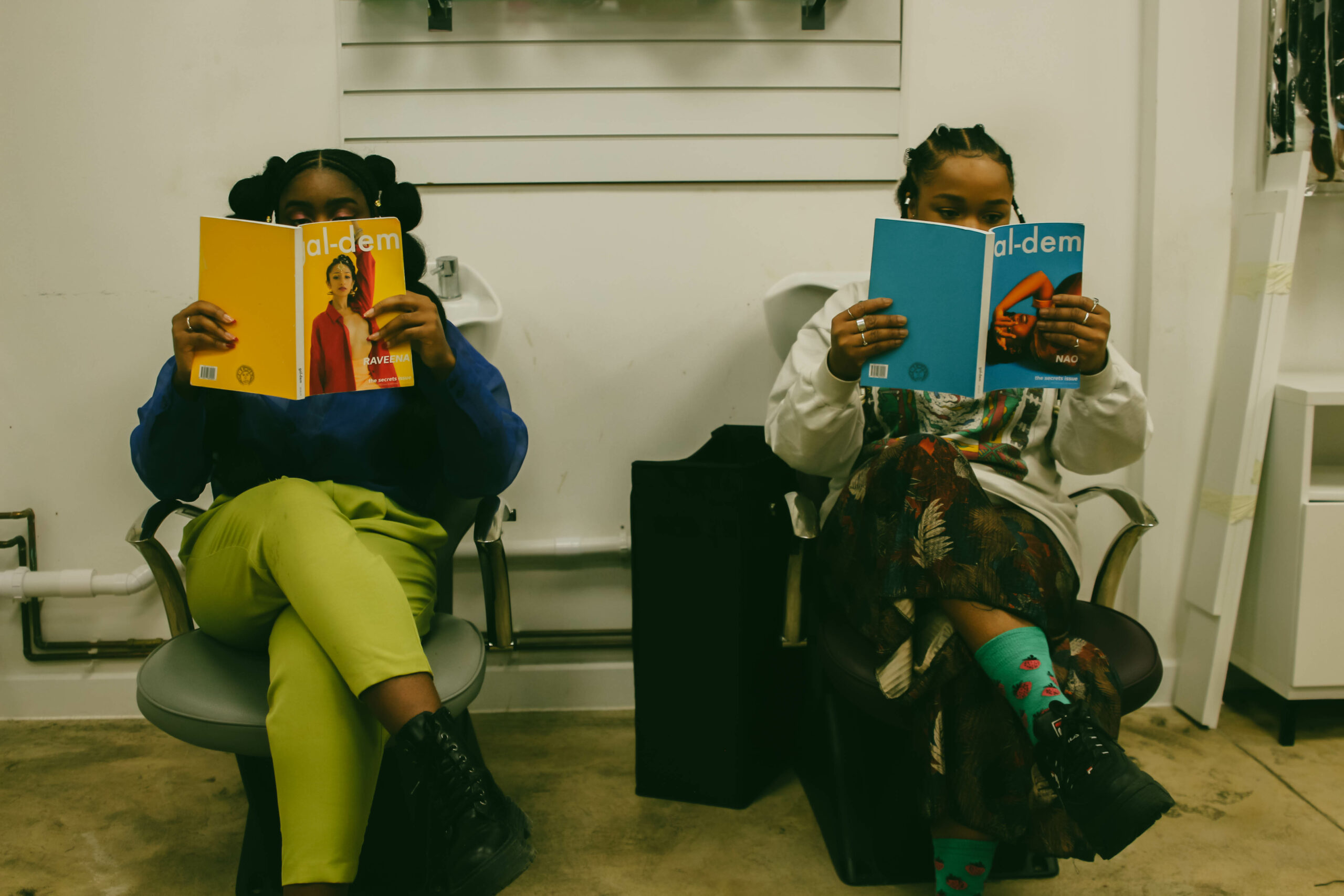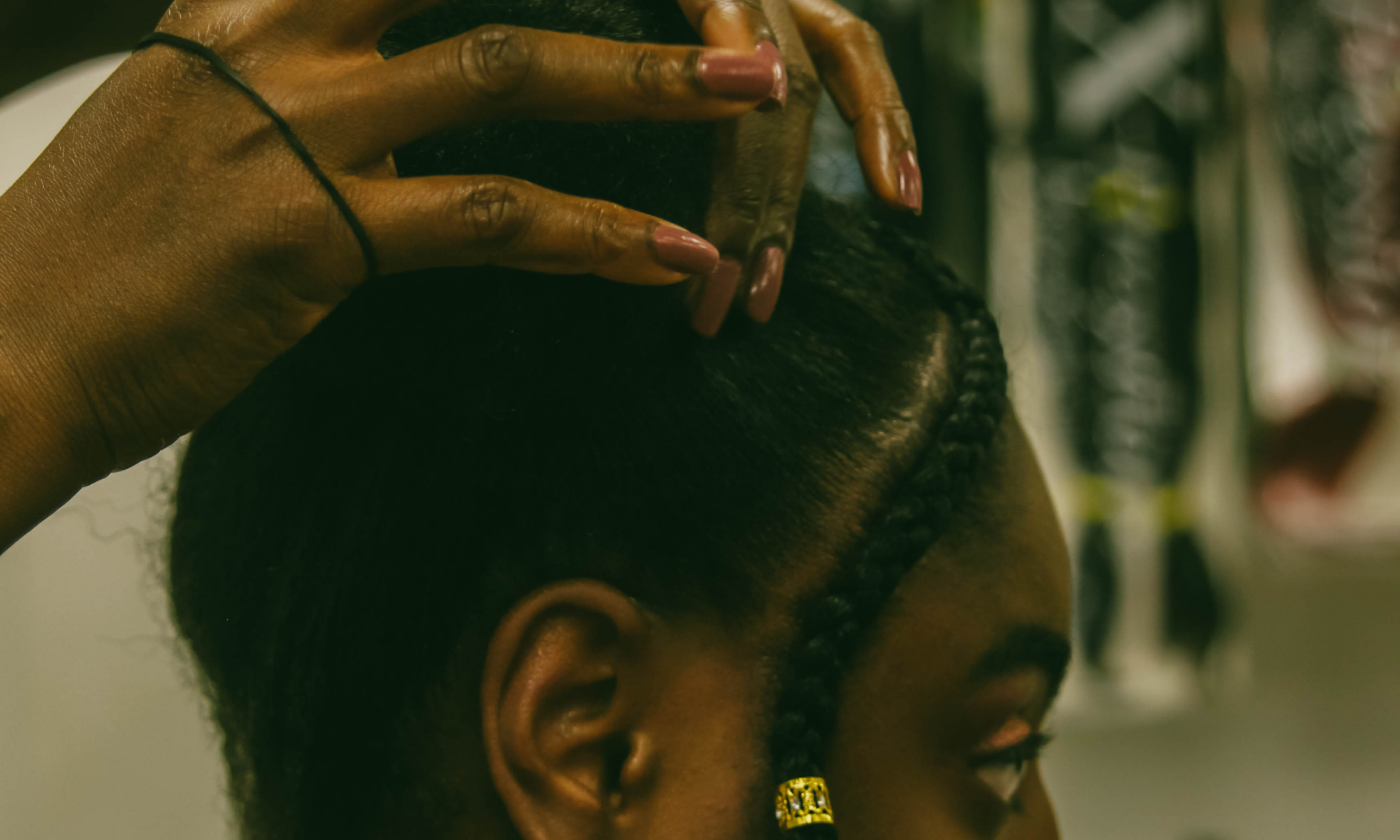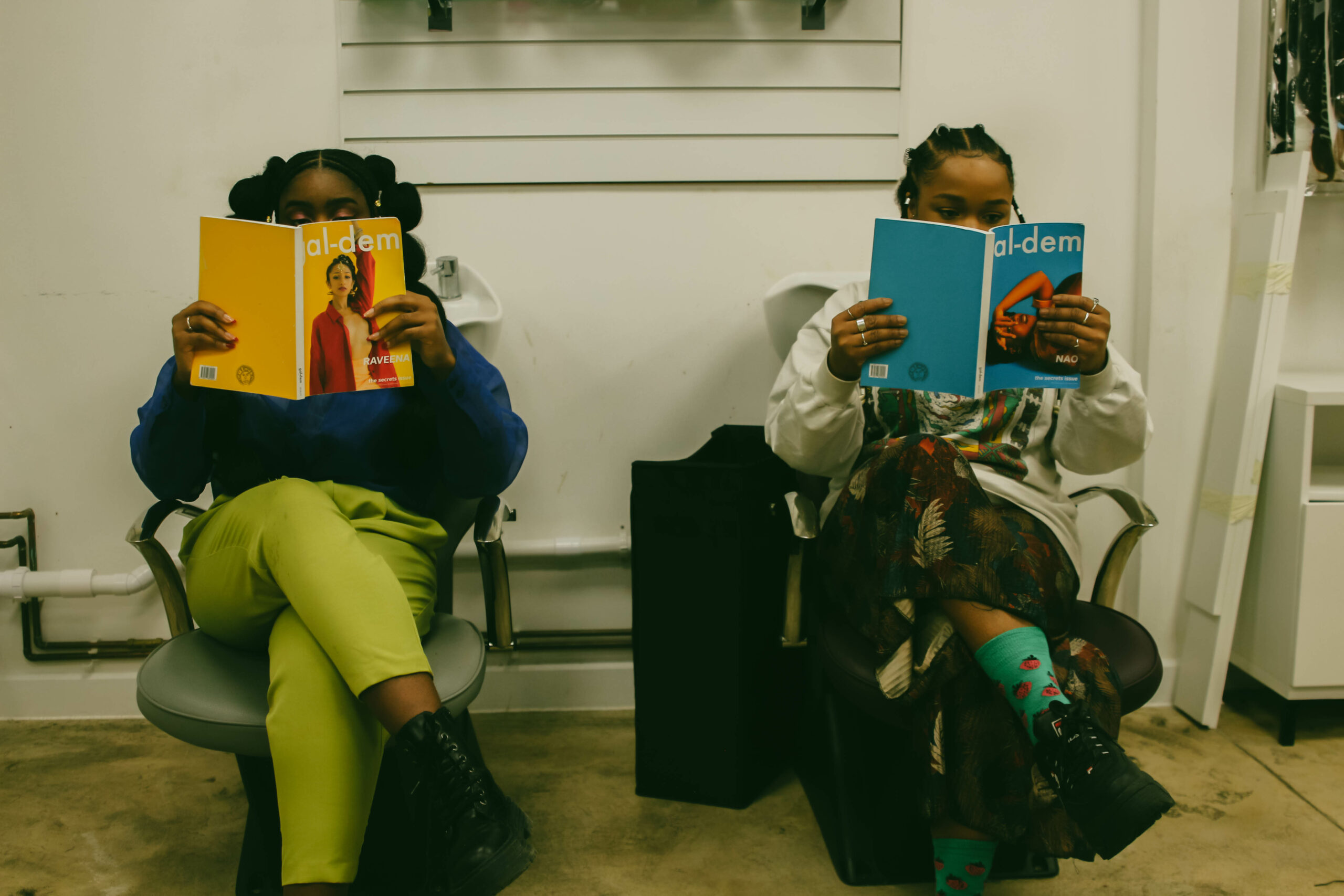
Photography by Yossy Akinsanya for gal-dem / Peckham Palms
Afro Answers: why you might need sulfates in your shampoo and how to read product labels
Trichologist Ebuni Ajiduah busts some myths on chemicals in products versus natural products, and how to keep safe when buying products.
Ebuni Ajiduah
02 May 2021
A few years ago I sat in a trichology conference in Manchester and listened to a presentation on products for Afro hair. What stuck with me was when the lecturer said Afro products are light years behind in terms of technology. What he meant was, brands are constantly evolving and developing the science and technology in their products – but we are still doing things in a very old way. The saying ‘if it ain’t broke don’t fix it’ comes to mind, but I can’t help but wonder if we missing out and falling behind.
Are chemicals bad for our hair and is natural the answer?
In a past life, I used to be a secondary school science teacher and one of the first lessons I would do with a new group of year 7’s was a lab safety practical. I would introduce them to the equipment and teach them how to light a bunsen burner, chemical safety and warning labels. The aim was to show them that chemicals can be safe; it just depends on how you use them. Many of us trust that beauty brands who make our hair products have our best interests at heart and so don’t pay close attention to the labels.
But, one thing the natural hair girlies are good at is scrutiny – they will analyse and take apart your product to determine if it meets the standard for their precious locks. In theory, this is very good practice, however, if you do not have a cosmetic science or marketing background, it can be hard to cut through the jargon and actually understand what’s in a product. Many chemicals have been blacklisted and rightly so. May sales of relaxers, which as Mintel reports, continue to fall (if that is your thing no judgement though). However many other chemicals have been sent to the naughty list for no reason.
A common misconception is that no-poo or co-washing, (basically foregoing shampoo) is better for your hair. This came about because shampoos can be ‘drying’ or ‘harsh’ on the hair. Now there’s the option to buy sulphate-free shampoos or opt for alternative cleansers – clay, conditioner, and other jazz. BUT I actually need you to free my guy, he’s innocent! Sulphates (a surfactant that helps the product to foam and bind to oils and dirt) are a great cleanser and if you insist on using every oil and butter on earth then your dibby dibby co-wash isn’t going to cut it.
The example I give to my clients is, try washing your stew container out with just hot water or your clothes with only fabric softener – not feeling it now, are you? Don’t get me wrong some shampoos can be drying but that is why we condition and moisturise after.
Honourable mention to parabens and silicones, they got done for mistaken identity. Soon touch road fam.
What exactly is a ‘natural’ hair product?
‘Natural’, ‘clean’, ‘green’ – whatever you want to call it –, these words trigger me because they are being used to deceive and swindle people. There is no accepted or legally binding standard that these products adhere to. I can say a product is ‘natural’ and have my fingers crossed behind my back. It is up to the individual company to decide what it means to them and by using buzzwords, a brand can seemingly elevate itself without really explaining how.
Obviously, no one is selling you sewer water, but these terms are made to invoke feelings of consciousness and making better choices for your body. However, there are VERY strict guidelines about what can go into products and safety testing in the UK. Brands use these terms to allude to the fact that natural is better and other products are essentially toxic waste.
If you want an organic, plant-based, hypoallergenic product then look for those (they are still all chemicals though!) Natural is good, but fit for purpose is best.
Using chemicals in your head is not necessarily bad…. or is it?
My stance on DIY products is clear and I am a sucker for a well-formulated product, but do Black women have reason to be wary and stick to what they know? The short answer is YES!
A 2018 US-based study caused major waves by analysing commonly used Black hair products and the results showed many contained unlisted ingredients and were positive for several endocrine disruptors. These are chemicals that can interfere with the hormones and cause several wide-ranging issues from cancer to birth defects and respiratory issues.
These areas need to be studied in a lot more depth as many factors could come into play besides product use, but there are some links to fibroids and breast cancer which disproportionately affect Black women. Another study linked hair dye use to breast cancer. Although America is a lawless place (xxx), it’s hard not to see these findings as concerning. A study in Ghana also reported a higher incidence of breast cancer in relaxer users.
While we may feel safer knowing that the UK and EU have very strict laws on ingredients (which is why many don’t make it across the pond), even if you manage to avoid every sus ingredient in your hair routine, the truth is a lot of it is also in the foods you eat, your drinking water, the air you breathe and your household items (remember BPA plastics?). The truth is that many issues do not show up for years, sometimes even decades, and by then the damage is already done (Johnson & Johnson I’m looking at you).
Before this seems like all doom and gloom, there are some things you can do to keep yourself safe.
How to keep safe when you buy products
Beware of knock offs: While we may want the best products from overseas, often there is a very good reason they are not available on our shores. Beware of knockoffs, they are very common in certain hair shops. If you are not sure, search for a picture of the packaging and make sure they match.
Know what the ingredients are for: Each component will have a purpose and can’t really be judged on an individual basis. For example, you may have been told to avoid alcohol in your hair, and keep an eye out for any ingredients ending in x-ol (like cetyl alcohol, propylene glycol) without realising that some are great for moisturising. Get familiar with ingredients. Google can be a bit of a minefield but Chemist Corner is a great resource.
Pro-tip, preservatives are GREAT – they make sure that your product is actually clean and prevent them from becoming mouldy and nasty. This is something a lot of homemade products don’t have.
Patch test and review: If you are a little sceptical about a product, see what other people are saying online. Or purchase a sample or travel size to see how it fares. Reactions to products mostly occur with improper use, so make sure you are following any instructions.

